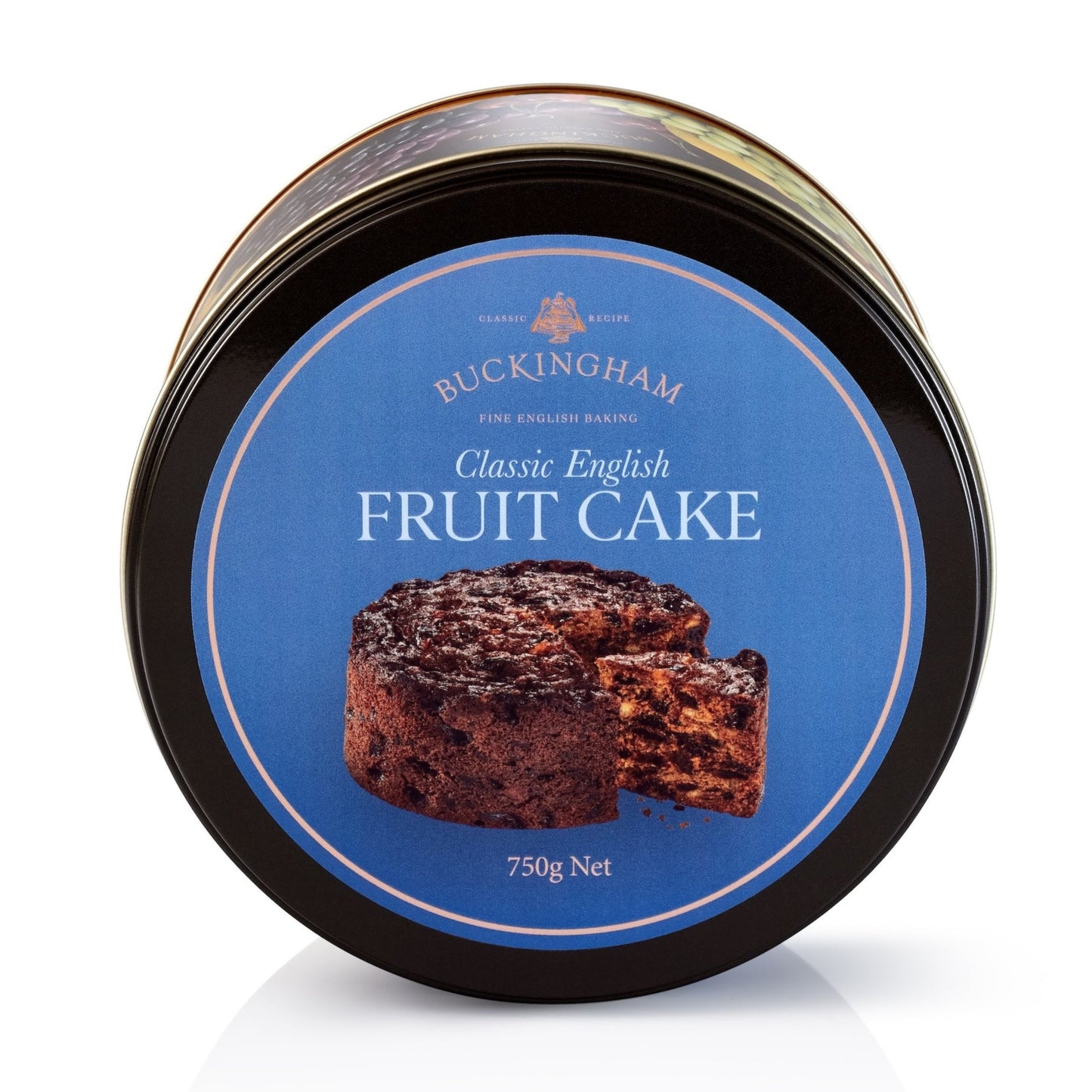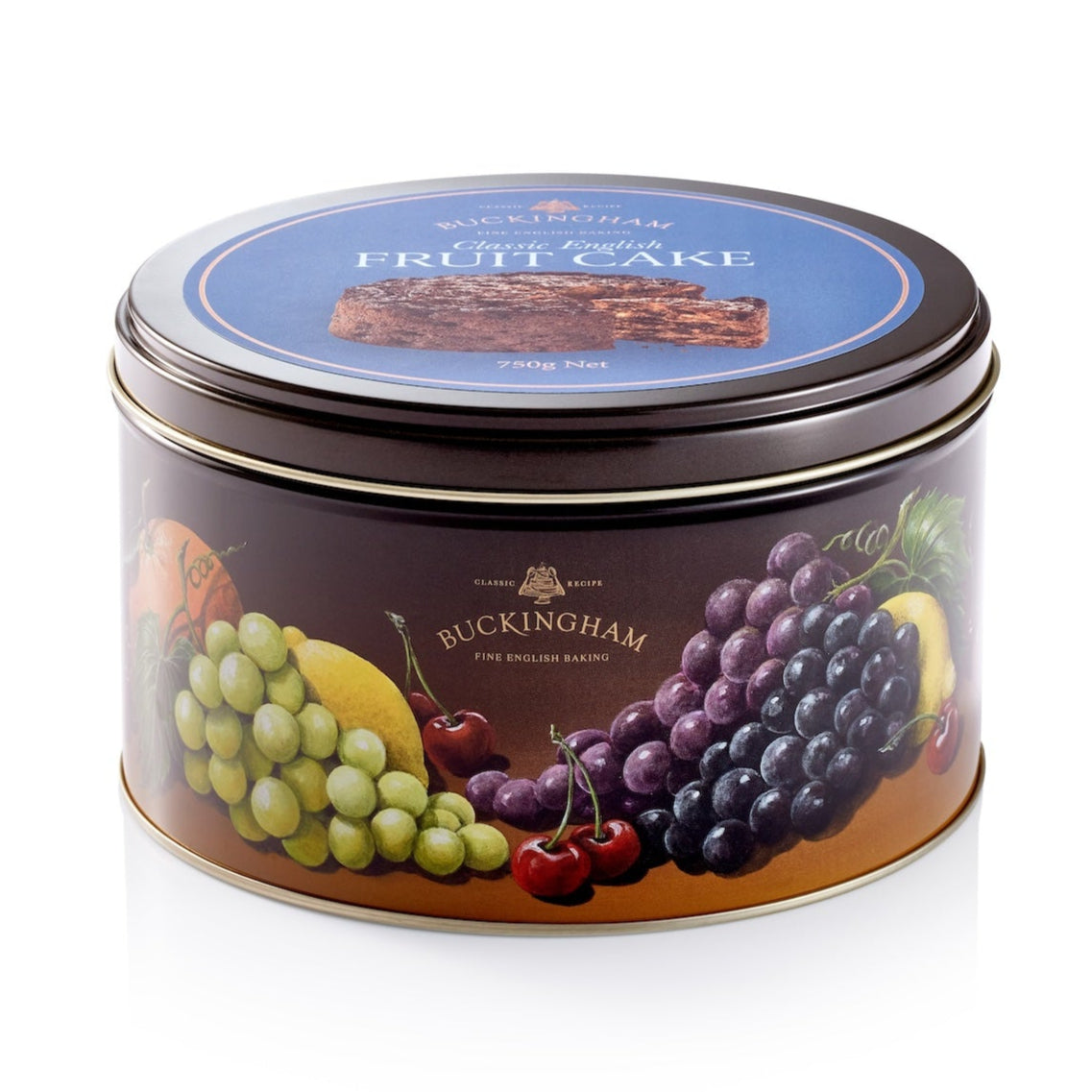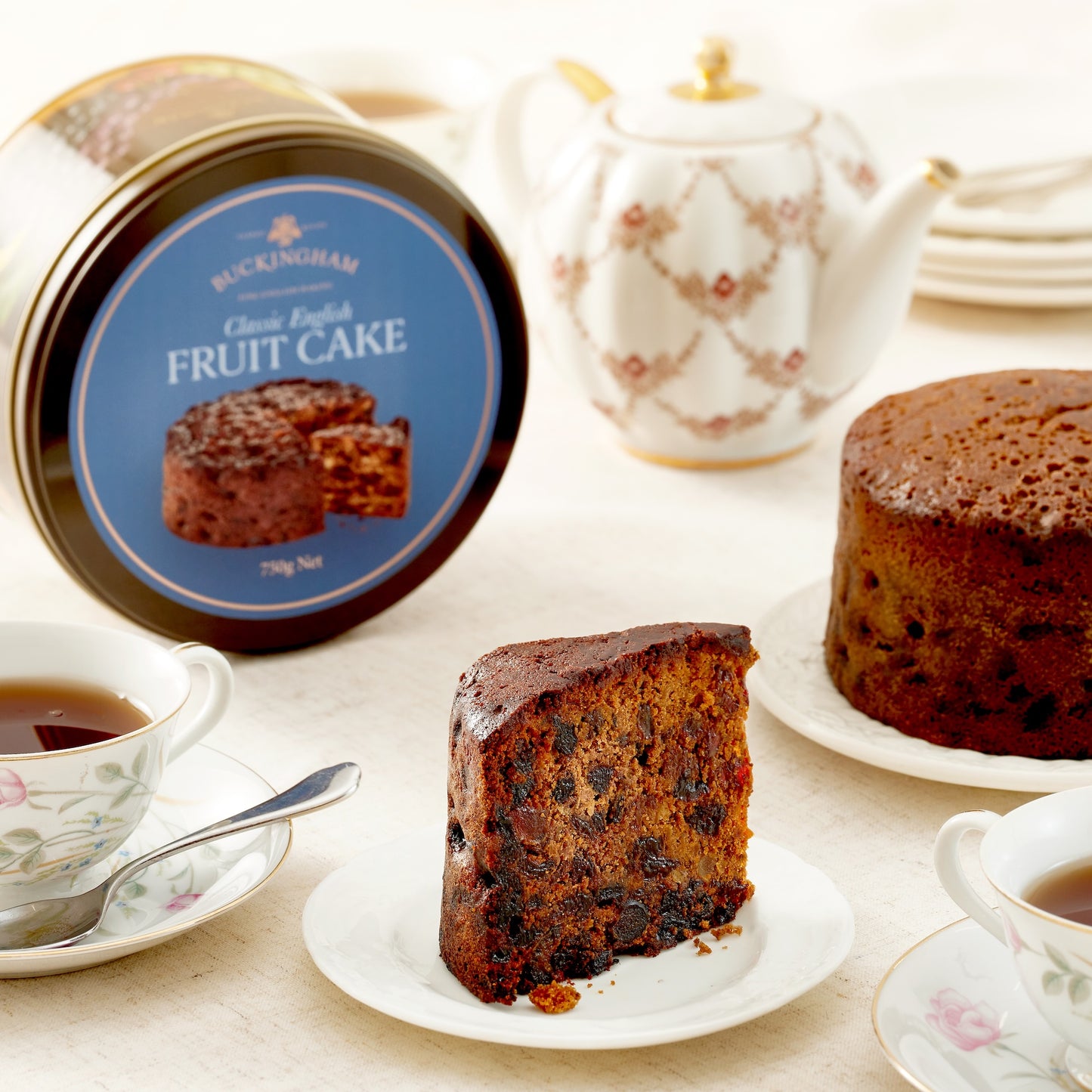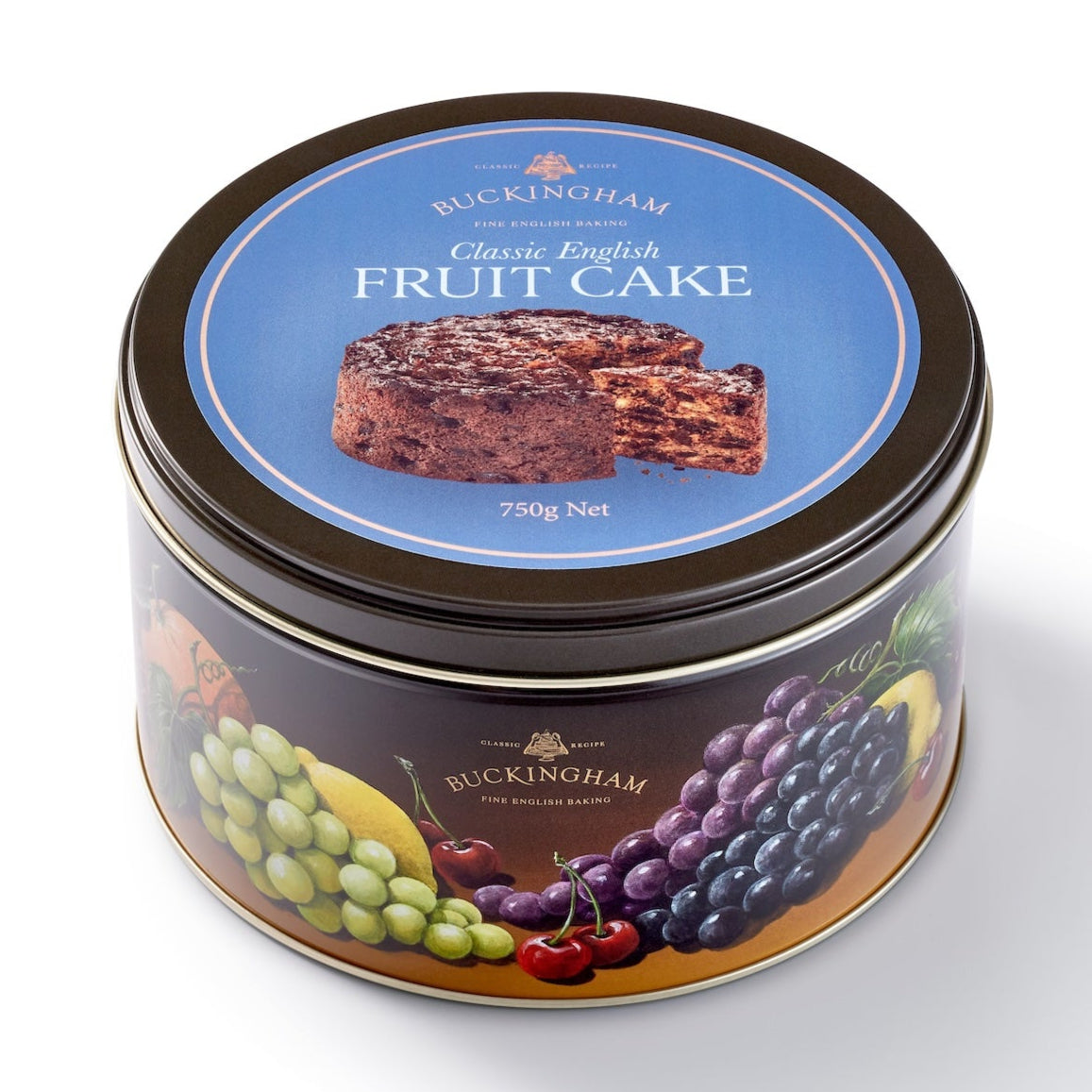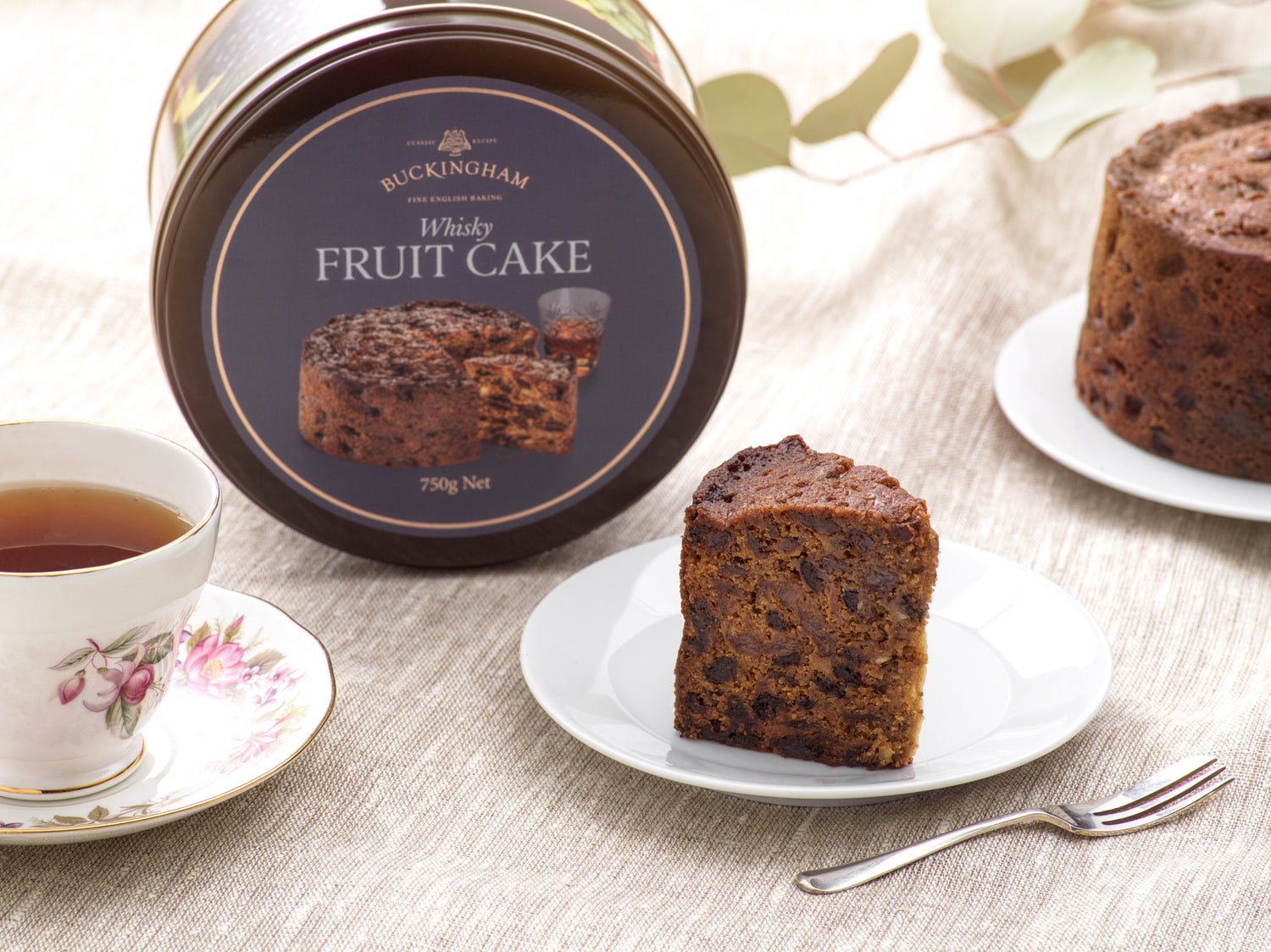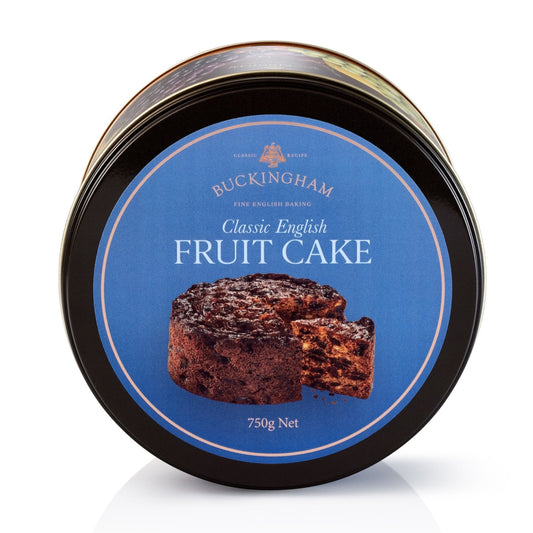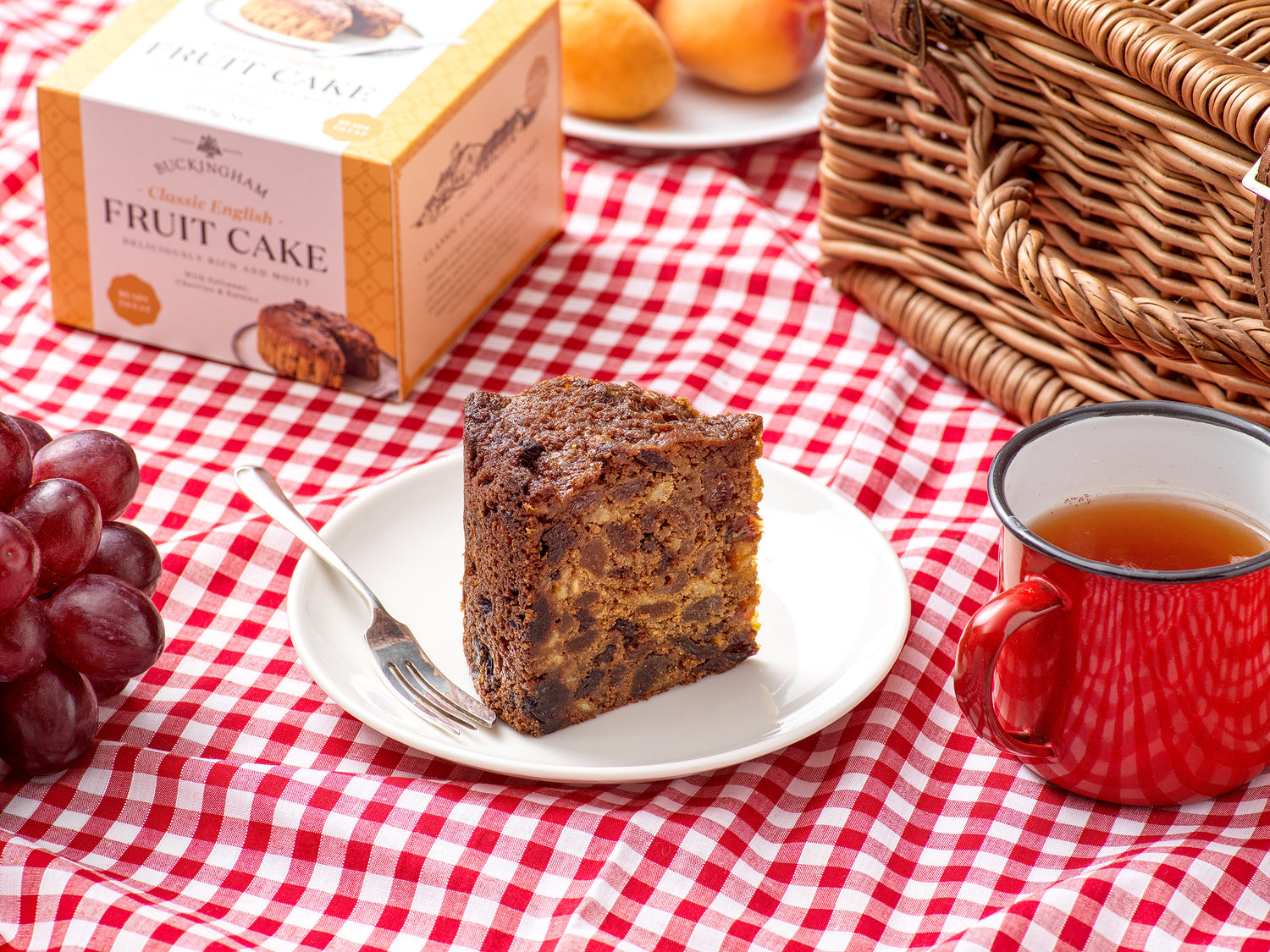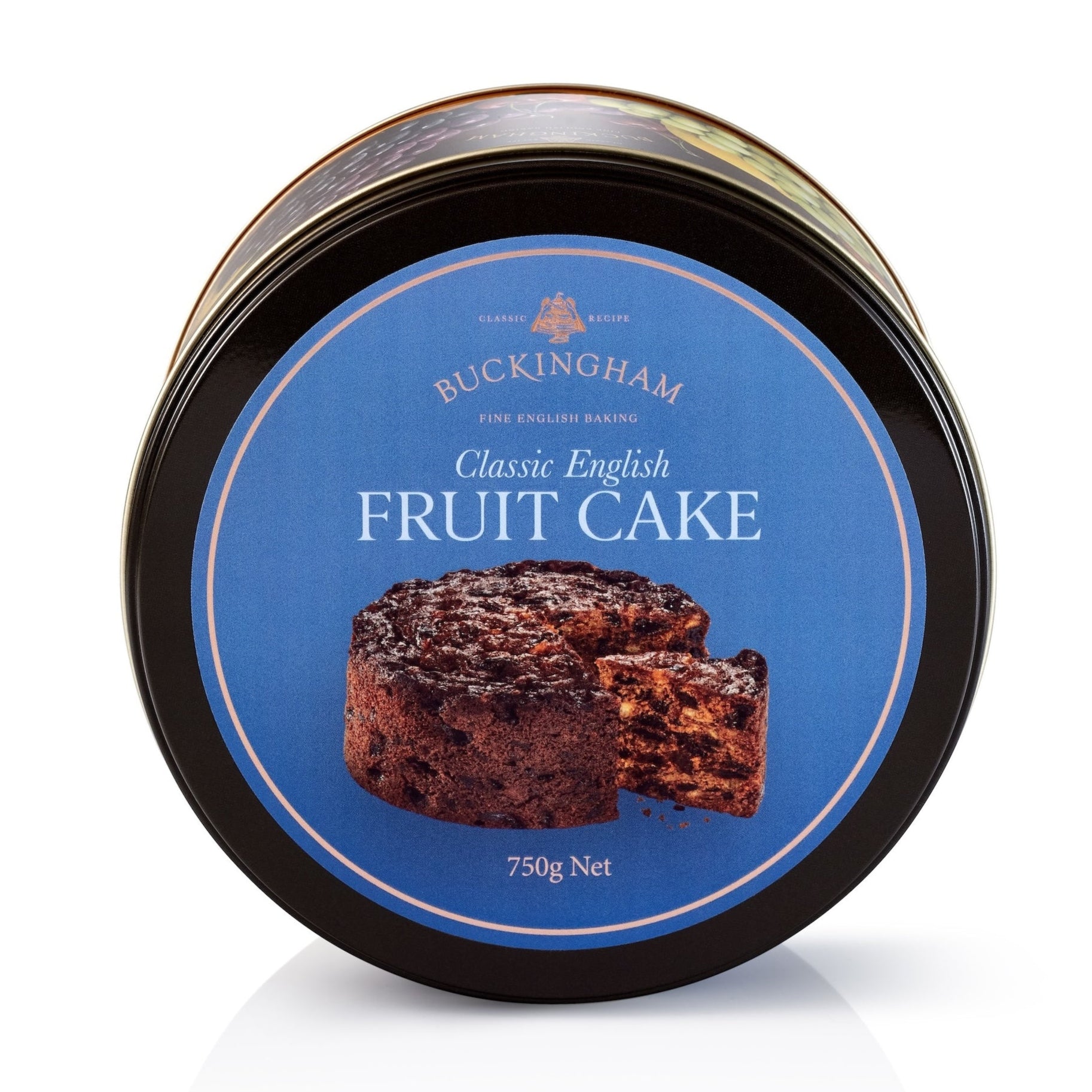Our mission is to bring these delicious cakes to food lovers all over the world.
We select the most quintessential English recipes, find the best ingredients, bake each cake with loving care, and finish with luxurious gift packaging. Then we ship the cake to wherever there are cake aficionados waiting for their favourite English delicacy.

Our Location
The cakes are hand-made in a modern family-run bakery with BRC certification, based in Somerset, whilst our warehouse and offices are in the small historic town of Bradford on Avon, surrounded by rolling hills and green fields.
Featured collection
-
Classic English Fruit Cake 750g
Regular price Dhs. 95.00Regular priceUnit price per -
Spiced Rum Fruit Cake 750g
Regular price Dhs. 100.00Regular priceUnit price per
About Fruit Cake
The origins of fruit cake in England date back to the 17th century.
In the 1600’s the Europeans started to import sugar cane from the tropics. In Britain, sugar gradually changed from being a luxury to an every-day commodity. The affordable price of sugar was the key to preserving fruit well beyond harvest time, making it possible to add fruit to a cake and keep the cake for many months. Hence the concept of ‘fruit cake’ was developed.
Originally called ‘plum cake’ The cake is richly flavoured, made with a mix of dried vine fruits (sultanas, currants and raisins), candied fruits (typically cherries, orange and lemon peel), flour, eggs, butter and brown
sugar.
The Buckingham recipe dates back to 1890. The cake is hand made, still following the original recipe and using no artificial colours or flavours.
In England, fruit cake remains very popular all year round to eat with ‘afternoon tea’ – a tradition still observed by many English families, at home and in teashops and restaurants. English people often make a fruit cake several months before Christmas, which gives it time to mature for the festival in December. Fruit cake matures like a good cheese, its flavour improving with age.
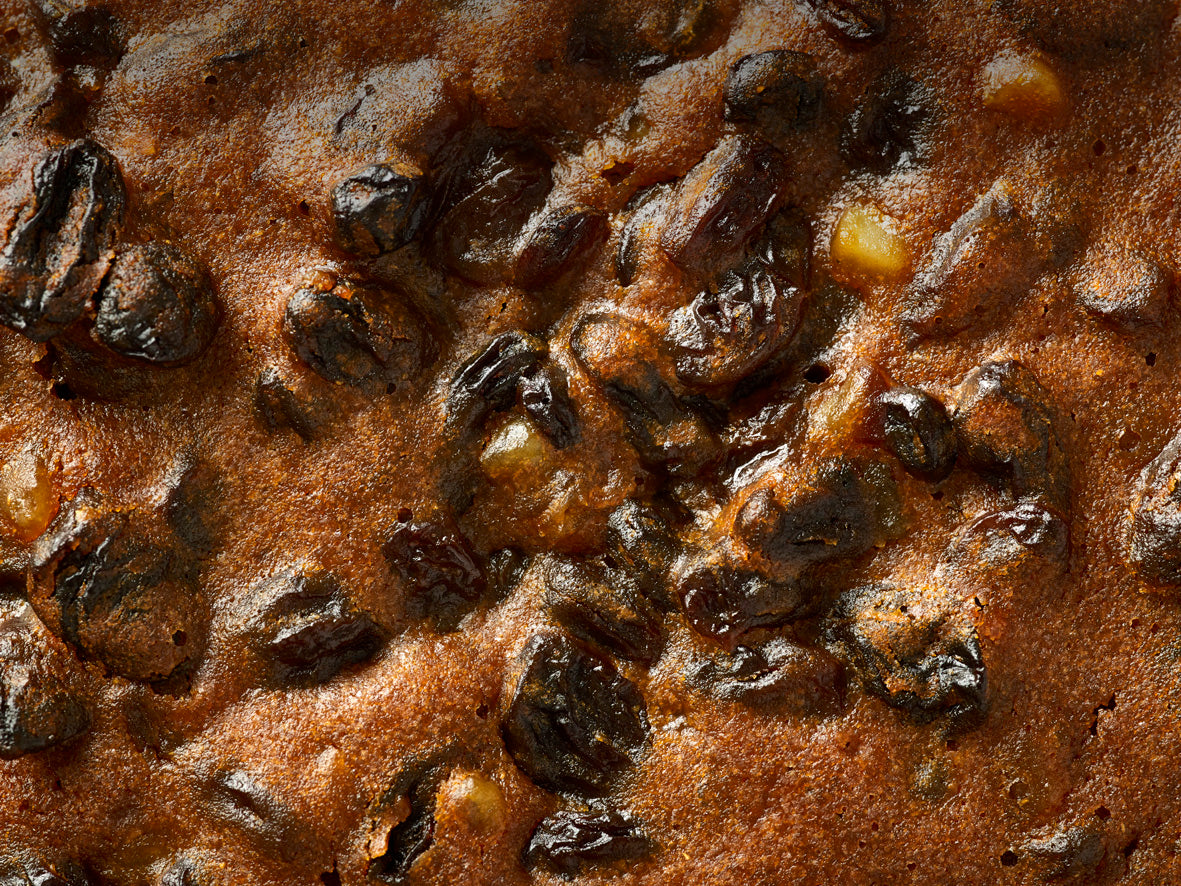
Did you know...
...In the 1700’s the cake was traditionally baked at the end of the harvest. It was said to bring good luck if the cake wasn’t eaten until the beginning of the following harvest.
...In the 1800’s eating fruit cake was banned for a while because it was considered ‘sinful’ being too rich and delicious.
...Fruit cake is loved by British royalty. When Queen Victoria married in 1840 her wedding cake was a huge fruit cake. More recently, Prince Charles (now King Charles) and Lady Diana had fruit cake at their wedding in 1981..
...Prince William and Kate also celebrated with fruit cake when they married in 2011.
...American astronauts took a slice of fruit cake with them on the Apollo 11 spacecraft for the first landing on the moon in 1969.
In England everything stops for tea, and traditionally cake is served. We believe English fruit cake is one of the world's great culinary inventions.
About ‘English Afternoon Tea’
England’s afternoon tea ritual started in the 1840’s and, according to legend, it’s all down to Anna Maria Russell, the seventh Duchess of Bedford. Afternoon tea was a way of having a snack between lunch and the evening meal (which was typically not until 8pm). The Duchess used to get hungry in late afternoon and would have a little snack of tea and cake to dispel the hunger pangs. Friends of the Duchess joined in the ritual and it spread through aristocratic circles. At first it was only for those rich upper-class ladies living in large houses with beautiful gardens. Black tea was a special delicacy imported from India and only the rich could afford it. The ladies would dress in elegant clothes and enjoy cake with tea served from silver teapots. As the Duchess was a friend of Queen Victoria, it’s very likely that she introduced the Queen to the delights of afternoon tea. Later on, at the height of her reign, Victoria would entertain hundreds of guests at Buckingham Palace with formal afternoon tea gatherings she called ‘tea receptions’. No doubt the guests also enjoyed fruit cake. As supplies of tea became more plentiful in the early 20th century, the taking of afternoon tea became a popular ritual all over England.
It’s hard to beat the delicious combination of tea and cake at four o’clock in the afternoon. Or, as Henry James put it: “There are few hours in life more agreeable than the hour dedicated to the ceremony
known as afternoon tea”. Henry James probably enjoyed a slice of fruit cake as much as we do.
Buckingham-cakes
Classic English Fruit Cake 750g
Share
